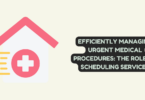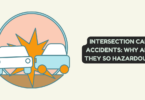
Are you ready to take charge of your family’s financial future? Empowering families with financial literacy resources is essential in today’s complex world. By gaining the knowledge and skills to effectively manage your money, you can secure a stable and prosperous future for your loved ones.
Financial literacy is the foundation for making informed decisions about your family’s finances. It encompasses various aspects, such as budgeting, saving, investing, and understanding credit and debt. By mastering these areas, you can create a solid financial plan that aligns with your family’s goals and values.
Budgeting and managing expenses are key components of financial literacy. By tracking your income and expenses, you can gain a clear understanding of where your money is going and make necessary adjustments. This will enable you to live within your means and avoid unnecessary debt.
Saving and investing strategies are also crucial for building wealth and achieving financial security. By learning how to save for emergencies, education, retirement, and other financial goals, you can ensure a comfortable future for your family. Investing wisely can also help grow your wealth over time.
Understanding credit and debt is vital for making responsible financial decisions. By knowing how credit works, you can build a strong credit history and access favorable loan terms when needed. Managing debt effectively will help you avoid excessive interest charges and maintain a healthy financial life.
Teaching your children about money is another important aspect of empowering your family with financial literacy. By starting early and instilling good money habits, you can set your children up for a lifetime of financial success.
Accessing financial education resources is crucial in developing your financial literacy skills. There are numerous resources available, such as books, online courses, workshops, and community programs. By taking advantage of these resources, you can gain the knowledge and confidence needed to make sound financial decisions.
In conclusion, empowering families with financial literacy resources is essential for a secure and prosperous future. By mastering budgeting, saving, investing, understanding credit and debt, and teaching your children about money, you can create a solid foundation for your family’s financial well-being. Take advantage of the available resources and start your journey towards financial empowerment today.
Importance of Financial Literacy for Families
You need to understand the importance of financial literacy for your family’s future success. Financial literacy plays a crucial role in reducing poverty and ensuring long-term financial stability. By empowering yourself with knowledge about money management, budgeting, and investing, you can make informed decisions that will positively impact your family’s financial well-being. Financial literacy equips you with the skills necessary to create a solid financial foundation, allowing you to break free from the cycle of living paycheck to paycheck. It enables you to set financial goals, save for emergencies, and make wise investment choices. Moreover, financial literacy helps you teach your children about the value of money and instill good financial habits from a young age. By taking control of your financial future, you are setting your family up for success and a brighter, more secure future.
Budgeting and Managing Expenses
Visualize how effectively managing your expenses and budgeting can help you take control of your financial situation. By implementing personal finance tips and practicing effective money management, you can pave the way for financial stability and security for your family. Budgeting allows you to allocate your income wisely and track your spending habits, ensuring that you live within your means. It helps you identify areas where you can cut back and save money, allowing for future investments or unexpected expenses. Managing your expenses involves prioritizing your needs over wants and making informed decisions about where your money goes. By being mindful of your spending habits and setting realistic financial goals, you can build a solid foundation for your family’s financial future. Remember, small changes in your daily financial habits can lead to significant long-term benefits.
Saving and Investing Strategies
Implementing effective saving and investing strategies can greatly enhance your financial stability and pave the way for a secure future. One key aspect of successful investing is risk management. By diversifying your investment portfolio, you can spread out your risk and reduce the potential impact of any single investment’s performance. This means investing in a variety of different asset classes, such as stocks, bonds, and real estate, rather than putting all your eggs in one basket. Diversification techniques also include investing across different industries and geographic regions. By diversifying, you can help protect yourself from market volatility and potentially increase your chances of earning consistent returns over time. Keeping an eye on all your stocks and ETFs using a portfolio tracker would be wise as well. Remember, no investment is entirely risk-free, but by implementing these strategies and staying informed, you can make more informed decisions and work towards achieving your long-term financial goals.
Understanding Credit and Debt
Take a moment to imagine yourself standing on a stage, surrounded by towering stacks of credit cards and bills, as you strive to understand the complexities of credit and debt. It can be overwhelming, but don’t worry, we’re here to help you navigate through it all. One important aspect of credit and debt is your credit score. This three-digit number plays a crucial role in determining your financial health. It reflects your creditworthiness and can affect your ability to secure loans or get favorable interest rates. Understanding how credit scores are calculated and how to improve them is essential. Another key aspect is debt management. Learning how to effectively manage your debt can help you avoid falling into a cycle of never-ending payments. By creating a budget, prioritizing debt payments, and exploring debt consolidation options, you can take control of your financial future.
Teaching Children about Money
Imagine yourself as a parent, guiding your children through the maze of money, teaching them valuable lessons about financial responsibility and setting them up for a lifetime of financial success. Teaching children about money is an important aspect of empowering them with financial literacy skills. By instilling good financial values and attitudes at a young age, you can lay the foundation for their future financial well-being. It is crucial to teach them about budgeting, saving, and spending wisely. Encourage them to set financial goals and help them understand the importance of delayed gratification. Use real-life examples and involve them in household financial decisions to make the learning process more engaging. By teaching your children about money, you are equipping them with essential skills that will benefit them throughout their lives.
Accessing Financial Education Resources
Discovering and utilizing available financial education resources can be an enjoyable and beneficial way to enhance your understanding of money management. In today’s digital age, there is a wealth of online courses and financial literacy workshops that are easily accessible. Online courses provide the flexibility to learn at your own pace and can cover a wide range of topics, from budgeting and saving to investing and retirement planning. These courses often include interactive modules, quizzes, and practical exercises to help reinforce your learning. Additionally, financial literacy workshops offer a more hands-on approach, allowing you to engage with experts and fellow participants in a collaborative learning environment. These workshops provide valuable insights and practical tips to help you navigate the complexities of personal finance. By taking advantage of these resources, you can empower yourself with the knowledge and skills needed to make informed financial decisions.
Conclusion
In conclusion, empowering family financial literacy resources is crucial for their financial well-being. By learning about budgeting, saving, investing, and understanding credit and debt, families can make informed financial decisions and secure a stable future. Teaching children about money from an early age also sets them up for financial success. Fortunately, there are many accessible financial education resources available to help families on their journey towards financial literacy. Take advantage of these resources and start building a strong financial foundation for you and your family today!






